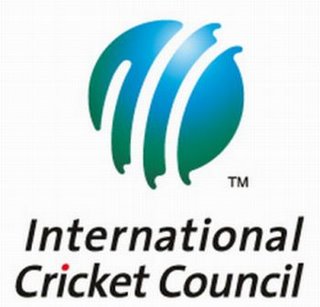Any worries that the first Twenty20 international in Lauderhill, Florida, would be a dreary contest because of a slow pitch were allayed by an exhibition of power hitting from the West Indian batsmen, much to the delight of the strong Caribbean contingent in the crowd. Kieron Pollard and Chris Gayle were the headliners, hitting missiles into the stands during a 108-run partnership plundered at almost 16 runs an over. Gayle began his innings watchfully but then accelerated to build a sound platform, which allowed Pollard to explode from the get-go and set a target that was comfortably out of New Zealand's reach.
New Zealand were listless in the field and looked every bit a side that hadn't played international cricket since March. Their lines and lengths were unimaginative and inconsistent; they conceded 13 runs in wides and bowled three no-balls; and they missed a stumping, a run-out and a catch. They lost Ronnie Hira to an injured finger, and Jacob Oram and Ross Taylor damaged a knee and a shoulder while fielding. They have less than 24 hours to nurse those injuries and make plans to counter Gayle and Pollard before round two.
Gayle played a calculated innings. He began carefully, leaving deliveries outside off and swaying away from bouncers, and was happy to let Dwayne Smith and Johnson Charles attack. However, whenever there was a lull in the scoring, Gayle would use his muscle. He could have been run out on 8 had a throw from mid-off struck the stumps at the non-striker's end; it did not.
In the ninth over, Gayle hit left-arm spinner Hira powerfully towards long-off, where Oram dived but failed to prevent the boundary. Oram hurt his knee during the dive and had trouble later while bowling - struggling with his line and footing - and running between the wickets. Gayle continued to attack the spinners, carting Nathan McCullum for consecutive straight boundaries before pulling Hira into the stands beyond midwicket. He then hammered the ball back at Hira, who dislocated a finger as he tried to intercept it. Hira went off the field immediately and played no further part in the game.
Pollard entered in 14th over with West Indies 101 for 2. He hit his first and third balls for six, long-distance blows over long-off and long-on off the spinner Kane Williamson. His sixth, off Rob Nicol, also disappeared over long-off. Pollard took charge of the partnership from there on, and Gayle cruised in his slipstream. In the 17th over, Pollard top-edged a pull off Oram towards fine leg, where Taylor circled under the swirling ball and fell hard on his shoulder as he dropped the catch. He would retire hurt at the end of the sixth over of the chase because of that injury.
The penultimate over was the most expensive of the innings. Pollard sent a length ball from Doug Bracewell over the straight boundary to go past 50 off his 24th ball, and then Gayle decided he wanted in on the action. Gayle powered one six flat over long-on, burning McCullum's hands in the process, and sent two more far over deep midwicket to take 26 runs off the 19th over. Fifteen more came in the 20th, as West Indies amassed 209.
West Indies weren't as clinical in the field as they had been with the bat. Their bowlers bowled poor lines, which allowed New Zealand's openers to find the boundary frequently. They also had an injury concern, when Pollard dived and hurt his shoulder while trying in vain to stop a boundary at mid-off.
New Zealand had scored 37 in four overs when Darren Sammy gave Sunil Narine the ball, with immediate results. His first ball was down leg side but Guptill had come out of his crease and overbalanced, leaving Denesh Ramdn with a sharp stumping to complete. In the next over, after scoring 1 off his first eight balls, Taylor cut Samuel Badree for two fours. He winced and clutched his shoulder after each of those shots, and eventually went off the field.
Wickets began to fall regularly after that and the asking-rate soared out of reach. West Indies grew sharper in the field as well, effecting two run outs with direct hits. The game ended when Oram skied a catch to long-off in the penultimate over. New Zealand were nine down but Hira had a compound fracture and did not bat.













